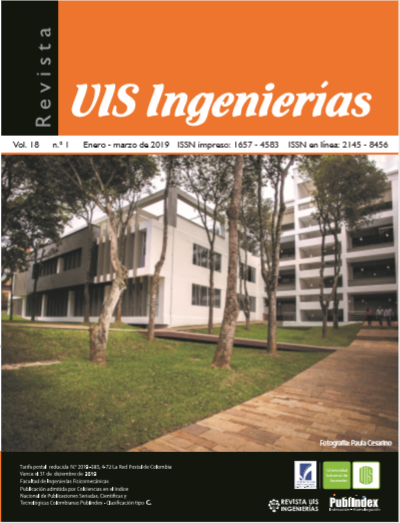Published 2019-01-01
Keywords
- technological development,
- environmental impact,
- quality of live
How to Cite
Abstract
Technology is responsible for man and humanity transformation; it is a natural response to human beings’ efforts to live in this world and “being well”. Nevertheless, nations’ economic growth –understood by many as the improvement of their citizens well-being together with technological development–, shows a strong relation with environmental degradation and its adverse consequences worldwide. In view of the above, this work looks forward to identify what kind of relation has technological innovation with human well-being. To do this, it was conducted a careful reasoning on man's inherent need for "well-being", technological innovation tied to this well-being and its consequences to the "being" itself. It is concluded that there is a very close relation because technological innovation is part of the very essence of the human race; however, as long as technology development is oriented by particular interests tied to economic and political power, the relationship between "well-being " and the quality of "being" will be inversely related. The evolution of the concept of "well-being" as defined by Marcuse requires a change of lifestyle, and thus innovation should be focused on the design of less harmful technology –environmentally friendly–, allowing people to live well and not just to live better.
Downloads
References
- J. O. Gasset, Ensimismamiento y alteración: meditación de la técnica otros ensayos. Alianza editorial, 2014.
- L. Mumford, Ventajas e inconvenientes. Técnica y civilización. Madrid, 2006.
- L. Mumford, Técnica y civilización. Barcelona: Altaya, 1998.
- J. Habermas and M. Jiménez Redondo, Teoría de la acción comunicativa: complementos y estudios previos. Madrid: Cátedra, 2001.
- J. Farndon, China rises: how China’s astonishing growth will change the world. 2008.
- S. Rogers and L. Evans, “World carbon dioxide emissions data by country: China speeds ahead of the rest,” the Guardian, 31-Jan-2011. [Online]. Available: http://www.theguardian.com/news/datablog/2011/jan/31/world-carbon-dioxide-emissions-country-data-co2. [Accessed: 09-Jun-2017].
- N. Chomsky, “Magna Carta Messed Up the World, Here’s How to Fix It,” The Nation, 2015.
- F. Dessauer, Discusión sobre la técnica. Madrid: Rialp, S.A., 1964.
- L. García Vega, J. Moya Santoyo, and S. Rodríguez Domínguez, Historia de la psicología. Madrid: Siglo XXI, 1993.
- J. Llovet, Ideología y metodología del diseño, 2nd ed. Barcelona: Gustavo Gili, 1981.
- H. Marcuse, El Hombre unidimensional: ensayo sobre la ideología de la sociedad industrial avanzada. Barcelona: Planeta-Agostini, 1993.
- V. Camps, Una vida de calidad: reflexiones sobre bioética. Barcelona: Ares y Mares, 2001.
- B. L. Cohen, The nuclear energy option: an alternative for the 90s. New York: Plenum Press, 1990.
- Organización de las Naciones Unidas para la Agricultura y la Alimentación, Los organismos modificados genéticamente, los consumidores, la incouidad de los alimentos y el medio ambiente. Roma: Organización de las Naciones Unidas para la Agricultura y la Alimentación, 2001.
- Organización de las Naciones Unidas para la Agricultura y la Alimentación, El estado mundial de la agricultura y la alimentación, 2003-04: [la biotecnología agrícola : ¿una respuesta a las necesidades de los pobres? Roma: Organización de las Naciones Unidas para la Agricultura y la Alimentación, 2004.
- J. M. Alfaro Barbosa, Ambiente y sustentabilidad: por una educación ambiental. México: Grupo Editorial Patria, 2014.
- M. Heidegger, F. Soler, and J. Acevedos, Filosofía, ciencia y técnica. Santiago de Chile: Editorial Universitaria, 2003.
- R. L. Sivard, A. T. Durning, and A. Braver, El planeta en la encrucijada: gastos militares, sociales y crisis ecológica. Barcelona: Icaria, 1992.
- E. M. Wood and D. Gonzalez, El imperio del capital. España: Viejo Topo, 2005.

